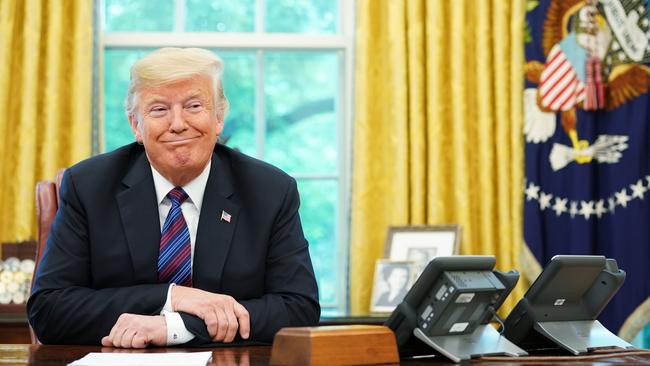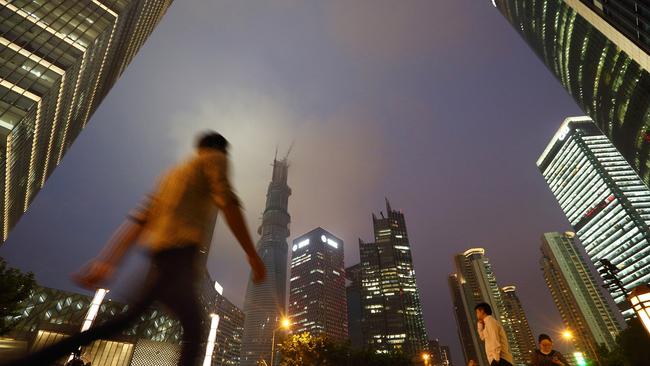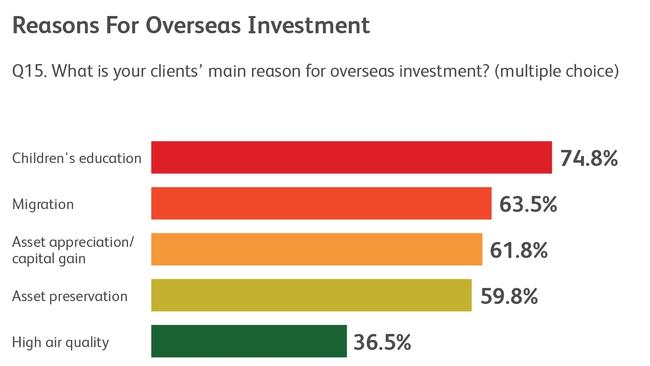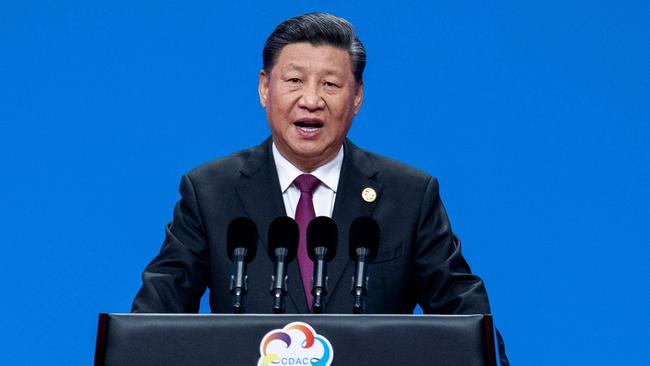Donald Trump trade war with China could impact Aussie housing
US President Donald Trump’s ongoing trade war with China could have unintended consequences for the Australian property market that could increase demand for housing.

US President Donald Trump’s trade war with China could have unintended consequences for the Australian housing market.
The United States currently ranks as the most popular destination for Chinese real estate investors but moves by Washington to slap tariffs on Chinese exports could drive a shift in investment patterns.
Housing experts said many China-based investors may shirk American properties in favour of those in other destinations, with Australia remaining a popular choice.
MORE: Hot sales as ‘new energy’ hits market
Mystery surrounds ‘record’ sale
It would reverse a trend of waning Chinese interest in Australian real estate, which has become a less popular choice since the federal government began imposing higher taxes on foreign property buyers.

Before the changes, Chinese investment in Australian real estate was high and one of the drivers of property booms in Sydney and Melbourne.
Investorist founder and CEO Jon Ellis said there had previously been little prospect of a revival of Chinese demand for Aussie real estate because most buyers were struggling to finance their purchases.
Lower Chinese participation in the market remained the most likely scenario for 2019 but this could change if there was a determined push from buyers to get into Australia, Mr Ellis said.
“It’s common in China for family members and friends to pool their resources in order to fund purchases,” Mr Ellis said.

Buyers often combined forces if purchases were related to their children’s education, he added.
Collective purchases also helped investors comply with Chinese government regulations, which restrict the amount of capital individual can take out of the country to US$50,000 per year, according to Mr Ellis.
“The industry is poised to see what decisions the Chinese government makes next in relation to foreign currency exchange,” Mr Ellis said. “Moves up or down would have an almost immediate flow on effect in Australia and other markets.”
Investorist research showed education remained the main reason Chinese invested in property overseas.

Migration was the second most popular reason to invest, with asset appreciation ranking only third.
That strong focus on education was one of the reasons the United States was such a popular choice for Chinese investors, with the bulk of the world’s top ranked universities still based in North America.
Education has also been one of the main drivers of Chinese investment into Australia – universities in Sydney and Melbourne are a popular choice for Chinese families to send their children.
One consequence of Donald Trump’s trade war with China would be that less families would want to enrol their children in an American college, removing the primary motivator for a US home purchase.

“There is the possibility of Australia benefiting from the fallout of the US-China trade war, as some Chinese investors may be discouraged from US real estate investment or college selection for their children, and choose the familiarity of Australia instead,” Mr Ellis said.
The US-China trade war has been raging for months and President Trump and his Chinese counterpart Xi Jinping recently raised the stakes.
The US announced in early May that it would increase tariffs from 10 per cent to 25 per cent on US$200 billion worth of Chinese goods. China retaliated by placing tariffs on US$60 billion of US imports.
Washington has also barred US firms from selling components and software to smartphone giant Huawei.

An Investorist survey of 160 real estate agents selling international properties to China-based investors showed Australia was currently the fifth most popular destination for purchases behind the UK, Thailand, the Euro Zone and the USA.
“Understanding Chinese property investment trends over the past 12-24 months could be likened to how water flows: it moves along the path of least resistance,” Mr Ellis said.
“Countries which offer the ‘least resistance’ in terms of taxes, foreign investment regulations, pricing and conducive immigration conditions are most attractive for Chinese agents sourcing properties for clients.”
About 56 per cent of agents said they expected international sales to Chinese buyers to increase this year.
Originally published as Donald Trump trade war with China could impact Aussie housing
